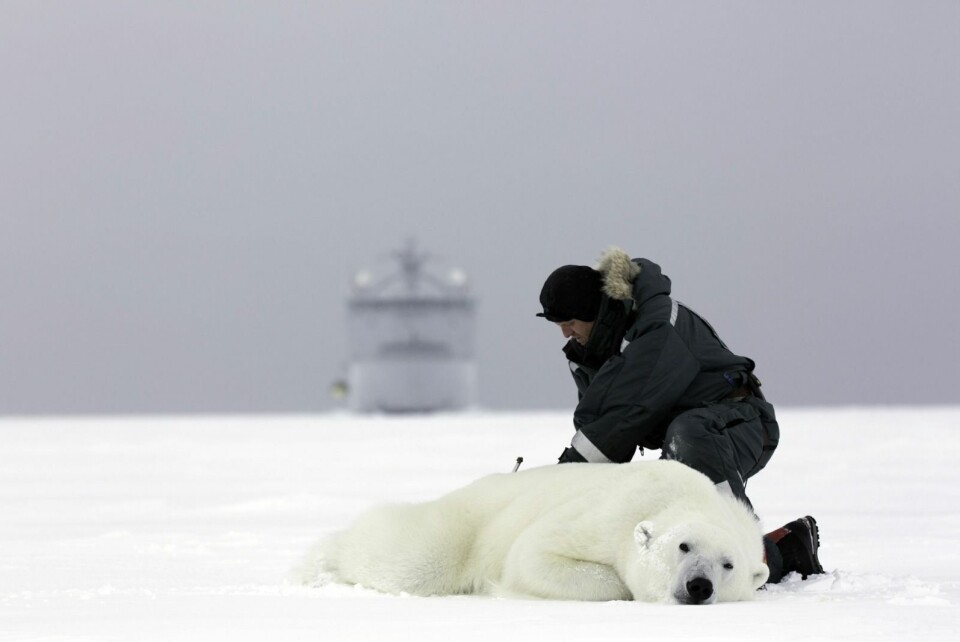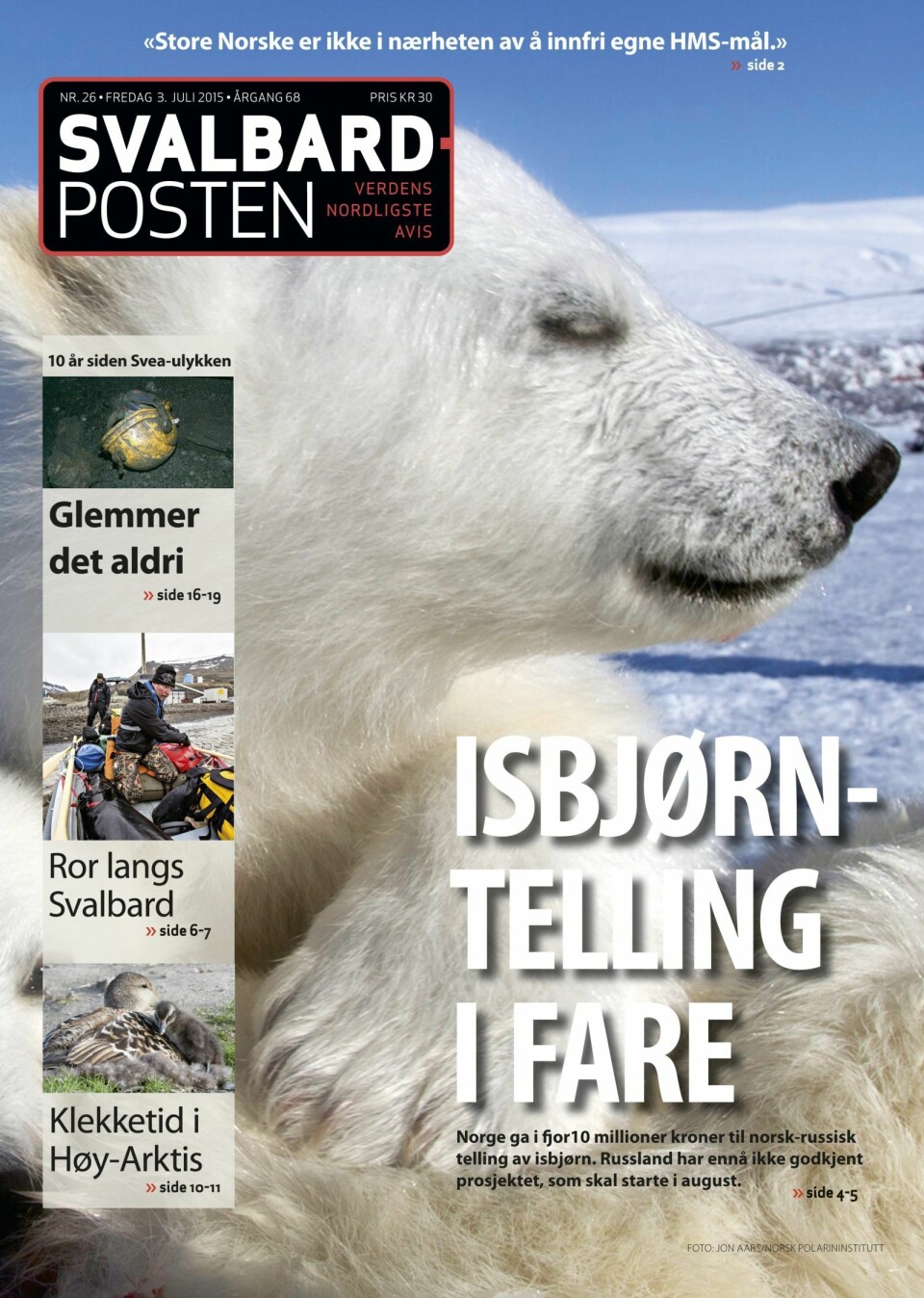Norwegian-Russian bear census expedition canceled
There will be no count of polar bears in the Russian part of the Barents Sea.

Denne artikkelen er mer enn 10 år gammel.

"We don't have permission‚ that became clear in the middle of the week," said Jon Aars, a polar bear researcher at the Norwegian Polar Institute.
Svalbardposten reported July 3 there was considerable uncertainty about the large-scale Norwegian-Russian expedition to count polar bears in the Barents Sea because there still was no approval from Russian authorities for a count around Franz Josef Land.
Great uncertainty in the numbers
The Barents Sea population of polar bears is located in the Svalbard and Franz Josef Land areas. While some are stationary, other polar bears roam large areas in search of food, including between the two areas. The last major census was done in 2004, but there is considerable uncertainty about the exact population. The conclusion then was between 1,850 and 3,400 bears were in the Barents Sea area. The uncertainty lies in the calculation model used at the time since there were areas that could not be covered by helicopter.
The Norwegian government approved 10 million kroner last year for a new census in collaboration with Russia, with the month-long count scheduled to start at the end of this July.
But in this case, the count as envisioned won't happen.
SEE ALSO: Norwegian-Russian polar bear project may crash
"Disappointed "
The deadline expired last Wednesday," Aars said. "In addition, time for us has run out – for example, we needed time to obtain visas and such.
Is he disappointed?
"Yes, I am disappointed that we did not get permission. But we'll make the best out of the situation and then we'll take it from there," said Aars, declining to speculate on why Russia failed to grant permission for the count.
"We have a good relationship with the Russian researchers," he said. "Those who would have been involved are equally disappointed."
Aars said he is satisfied with the effort Norway's Ministry of Climate and Environment made to press Russia for approval.
Jo Brink, a communications advisor for the ministry, said earlier this month they were continuing discussions with Russian authorities in an attempt to find a solution.
Plan B
Therefore, the researchers and others interested in the progress of the polar bear population are settling for Plan B. They will still carry out a count on the Norwegian side and, with the exception of the Russian researchers, it will happen with all of the planned resources, including Lance research vessel, K/V Svalbard icebreaker, helicopters and "census takers." The reason for proceeding is everyone involved in the large research project has already made extensive plans for the presumed partnership count with the neighboring country.
The only consolation is, according to the Norwegian Polar Institute, the count of Norwegian side will therefore be all the more precise.
"We will also encourage the Russians to count their side in the near future," Aars said.
"It will not be as good as it would be if we did it together now, but it will have a usable value if we could put them together."
Norway and Russia have signed a memorandum of understanding – a reciprocal agreement – stating they will carry out a census of the polar bear population.
Translated by Mark Sabbatini
